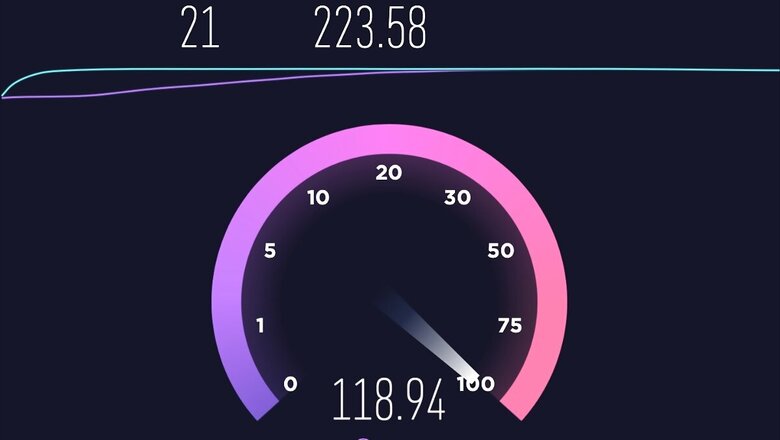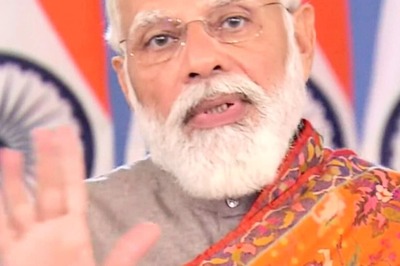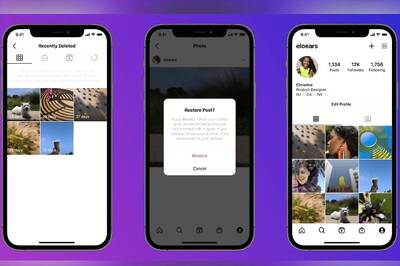
views
The Covid pandemic has proved to be the biggest change agent for the education system. No regulatory authority or leadership has been able to do what this pandemic was able to in a matter of days. Recent data from UNESCO suggests that almost 1.06 Bn students in 105 countries are currently affected by school closures. This includes those enrolled in tertiary education and makes up more than 60% of the total enrolled learners globally. The situation seems a little better than in April when the number of countries affected was a staggering 190 with 90% enrolled learners having to study from home. In India, the technology impetus within education is irreversible and the New Education Policy has also laid emphasis on this (apart from other things) with the proposed creation of the National Educational Technology Forum (NETF).
The lack of physical or facility-based instruction across the globe has created a fertile ground for the rapid rise of online education and various EdTech firms are fuelling this growth. According to the World Economic Forum, global EdTech investments were around $18.6 billion in 2019 and the market is projected to grow to more than $350 billion by 2025. India, which in 2019 had more than 37 million Higher Education students enrolled in Universities and Colleges, has seen frenetic activity in the online education space. Some commentators have even referred to this as EdTech’s demonetisation moment. Since March 2020, students across the country have been undergoing a range of courses online including the sciences, business, yoga, art, languages and many other subjects in front of laptops, smartphones and tablets with instructors and faculty joining in from other parts of the city or country. It’s no surprise that new broadband connections had increased 40% in urban India (according to Dept. of Telecommunications data) just after lockdown was announced.
The Indian education landscape is witnessing a great number of previously unimagined alliances with online education companies collaborating with traditional education setups. The reasons could be many – growth, scale, robust certification, tacit knowledge, signalling effect etc. All partners are hoping to gain from such collaborations in a rapidly changing ecosystem. Traditional educators too are trying to understand how to harness online learning for their existing students/programs and also for future growth prospects by way of new programs or courses.
The technology impetus within education is irreversible and the New Education Policy has also laid emphasis on this (apart from other things) with the proposed creation of the National Educational Technology Forum (NETF). If a Gross Enrolment Ratio of 100 in school education and 50 in Higher Education is to be achieved, online seems to be the only way to go.
However, to what extent can online education positively impact learning? There is frantic adoption of online teaching by way of various communication technologies and in many cases the medium is the only thing that has changed. The teaching pedagogies and the overall philosophy remain not too different to past practices. Online courses are at times an extension of an offline teaching approach that may or may not induce learning across the entire spectrum of students.
Research conducted by Prof. Susanna Loeb and academics at Stanford University suggests that for advanced learners, their performance across the online or in-person modes does not vary as much. However, the same may not hold true for slower learners. Their findings indicate that slower learners perform relatively worse in online settings as compared to physical settings. According to them, this is not an inevitable situation and can be rectified by a different approach to engagement and knowledge facilitation. This problem may also be one of the major contributors to higher dropout rates in online courses and it is not a surprise that a fledgling group of innovative education start-ups have come about to help solve this student retention problem. They tend to use data, AI & Machine Learning, and a customised learning environment to improve academic performance.
Of course, this is a drop in the ocean and all education institutions who have ventured into online learning have to build a very different learner centric capability. Whilst everyone in the academic fraternity including students maybe waiting to get back to in-person class sessions, returning to the ‘old’ normal is not something we can afford to do. The benefits of technology assisted learning or even a blended approach are far too many to deny and the search for Education’s ‘new’ normal has to continue in earnest.
About The Author
Dr. Vishal Talwar is the Dean – School of Management, BML Munjal University. Dr. Talwar has worked as faculty in leading universities and business schools, including the London School of Economics and Henley Business School, University of Reading. Dr. Talwar is a PhD from Manchester Business School where he was awarded a doctoral scholarship by the Shell Oil Company. With research and consulting interests in customer portfolios, marketing resource allocation and consumer ethics, he has presented his research at prestigious conferences such as the American Marketing Association Conference, Informs Marketing Science Conference, Academy of Marketing Conference and the International Marketing & Purchasing (IMP) Conference.
Editors' Note: This article is part of the 25 Years of Internet In India series, where we try to capture how the state of mobiles, home broadband, services and content have evolved, particularly in the past few years. We try to understand what the internet means for us, be it for the new reality of work from home, for entertainment and the Netflix binge watching, music streaming, online gaming and more. With the Industry Dialogue being a multi-part series by News18.com, the industry talks about the impact of digitisation, the adoption of technology by the masses, the proliferation of smartphones and the wider demographic going online, and what that means for India going forward.




















Comments
0 comment